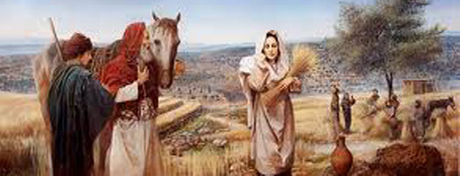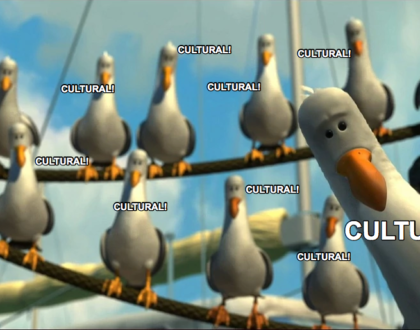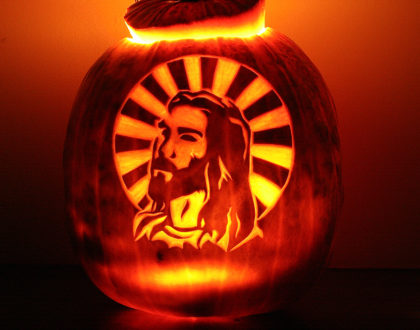Kinsman Redeemer

by Bubba
In Season 8, Episode 1 of NCIS, Franks mentions the Unspoken Rule to Jethro, “You do what you have to do for family.” Fortunately, for Ruth and Naomi, this was not an “Unspoken Rule” but part of the Levitical Law. Leviticus 25:47-55, English Standard Version [ESV] details this aspect of the law and Deuteronomy 25:5-6, ESV clarify the specifics of what a kinsman redeemer is responsible for in the case of a widow with no sons, also referred to as Levirate Marriage.
There are four specific guidelines associated with assuming the role of the Kinsman Redeemer that bear recognition:
- He must be a Kinsman (Lev. 25: 48b – 49) – While it is reasonable that a close friend or non-kinsman might redeem, that would not be a Kinsman Redeemer.
- He must be Free himself to redeem (Self Evident) – Those who are in bondage, slavery, or otherwise in need of a redeemer are not typically going to be found in position to redeem someone else.
- He must be able to Pay the Price (Self Evident) – Clearly one can not redeem if one hasn’t the resources to do so.
- He must be Willing to pay the price (Ruth 4:6) – Even if the first three guidelines are true, there is nothing that forces a specific individual to redeem. Leviticus 25:48, ESV says, “may redeem him”.
So we see that rather than having an “Unspoken Rule”, God providentially implements a system that both allows for redemption and sets the expectation that within His chosen people, family takes care of family.
What does it mean?
Our culture today typically has a limited understanding of what it means to redeem. While the word itself is not foreign to us, particular to churched folks; we rarely consider how much territory the word covers. Particularly in a community that most uses the term in association with a coupon.
Let’s look at some synonyms to get a better grasp of the breadth of the term:
| Ransom | Rescue | Appease |
| Buy Back | Unbind | Recompense |
| Recapture | Absolve | Reconcile |
| Reclaim | Redress | Make Reparation |
| Restore | Rehabilitate | Atone |
| Extricate | Satisfy | |
| Expiate | Save |
And some antonyms, to further define what it is not:
| Forfeit | Abandon | Ignore |
| Lose | Disregard | Arrest |
As we have demonstrated, redeeming is a weighty thing, and carries with it some astounding connotations. This is precisely why we find the term used throughout scripture, and if we view Boaz as Ruth and Naomi’s Kinsman Redeemer we see a significant portion of this weight acted out.
Boaz, the Redeemer
Ruth and Naomi are destitute; widows in a time and place where women are marginalized and widows are ignored. Living off the local welfare system that allows them to work in the edges of someone else’s field, among the others (men) that share their state, in order to eke out enough food to survive the coming winter.
It would appear that Naomi isn’t capable of working the field, and it falls to Ruth, who carries that added burden of being a Moabite (an enemy of the state), to attempt to gather enough for them both; a vivid picture of being in the midst of hard times.
Boaz steps into the scene (Ruth 2:4-7, ESV) and immediately begins taking care of family, as we see him interact with Ruth and both graciously and abundantly care for her (Ruth 2:8-16, ESV). We later discover that there is another kinsman who is closer (Ruth 3:12, ESV) to them; however, for reasons regarding his own inheritance, the other kinsman is not willing to “pay the price” (Ruth 4:6, ESV).
Free, capable, and willing; we see Boaz rescue them from their situation. This is not some marginal rescue either, it is analogous to Little Orphan Annie and Oliver Warbucks. From the life of a beggar to becoming the wife of a respected (Ruth 4:2 ESV) landowner in the area! Perhaps Boaz was not one of the city’s Most Eligible Bachelors (Ruth 3:10 ESV), yet surely no small change in their situation.
The best effects of Boaz’s redemption of Ruth is yet to come, great grand parents of the future King David (Ruth 4:17, ESV); entering into the lineage of Christ Himself, The Redeemer! (Matthew 1:5, ESV) How applicable then, that Boaz, as kinsman redeemer, provides a sketch of what we will see in the fullness of time.
Christ The Redeemer
He became a Kinsman.
It was impossible for God to save us apart from the incarnation of Christ. God could not die for us because God cannot die. He is eternal life and He is the source of all life. Only by being born as a man and taking on human flesh could He experience death for us.
He was free from the bondage of sin.
Jesus Christ was the only man who has ever been free from sin. From the day that Adam sinned in the Garden of Eden to this day, all have been under that bondage. Only Christ was qualified to set us free.
He was able to pay the ransom price.
Even if there had been another man who had been without sin, the death of such a man would still be lacking the infinite merit to pay for the sins of the whole world. At best, the sacrifice of a finite man could only atone for the sins of a single man. But the death of Christ was not the death of a mere man. It was the death of an infinite being. It was the death of God in the flesh. God died in our place. Only the death of such a One could have been sufficient to save the world.
He was willing to pay the price.
This is the most amazing truth of all. God loved us enough to send His Son to die in our place. When the venerable theologian, Karl Barth, was asked what the most profound truth that he had ever learned was, he replied: Jesus loves me.
Free, capable, and willing; we see Christ rescue men from their situation. This is not some marginal rescue either; think, Little Orphan Annie and Oliver Warbucks, think Ruth and Boaz. From the life of a beggar to becoming the respected children of God, Princes and Princesses! The Most Eligible Bachelor (Isaiah 54:4-8 ESV) has redeemed His bride, the church.
Recommended Posts

Cultural or Not
October 04, 2017

Children Are A Blessing
October 03, 2017

Halloween
September 26, 2017